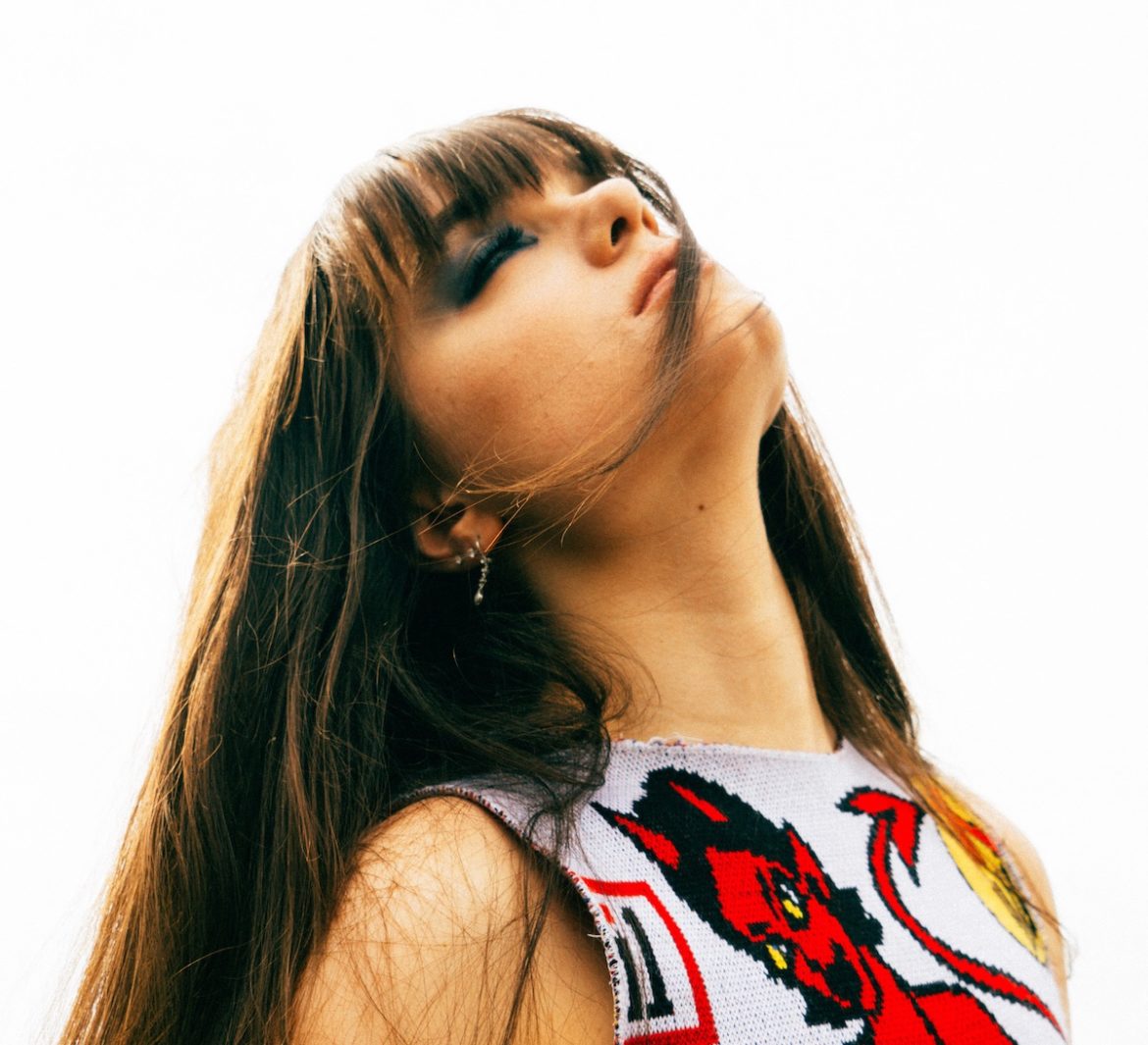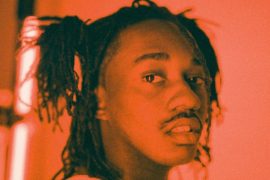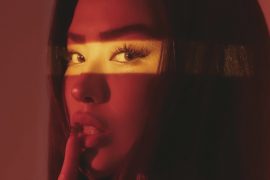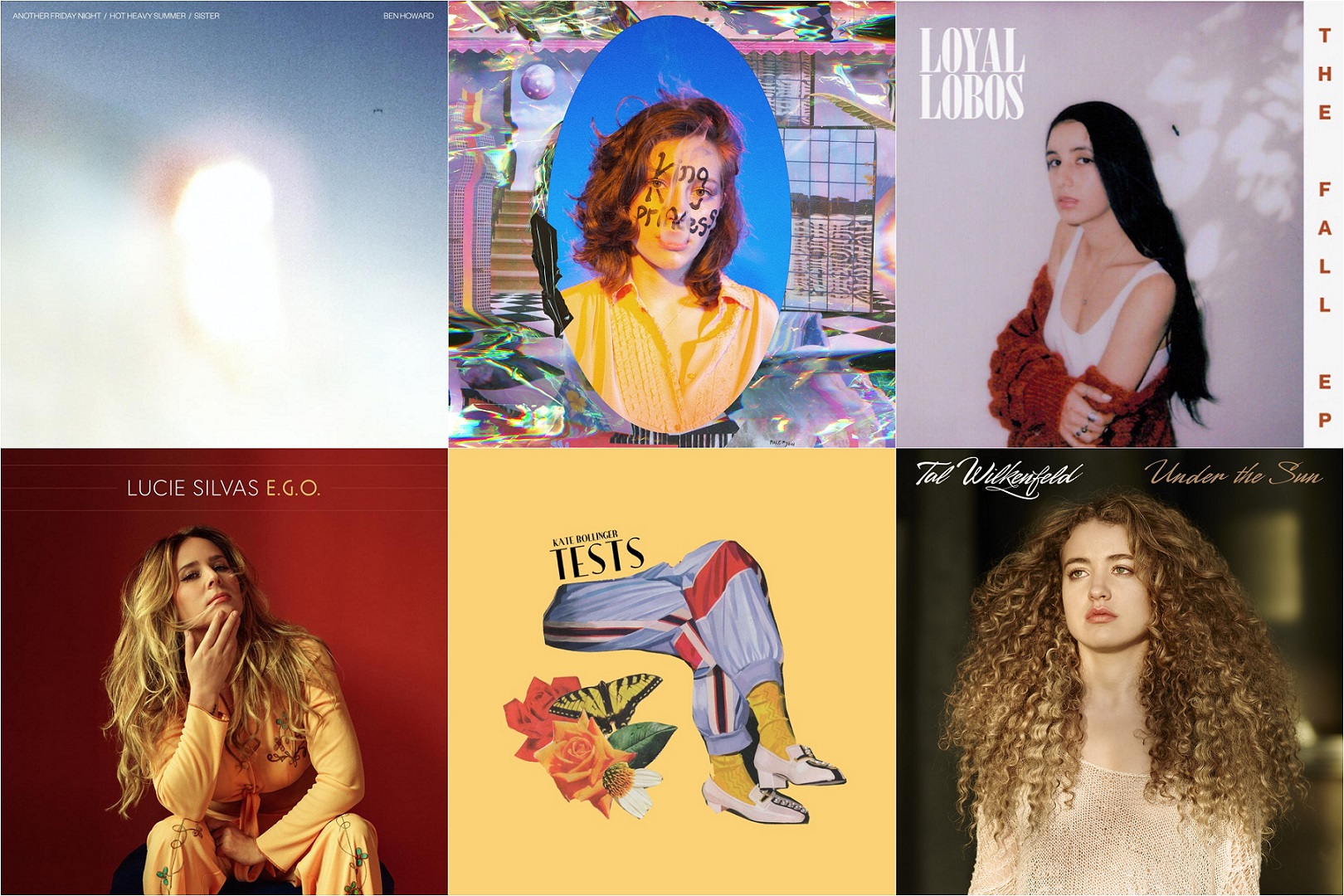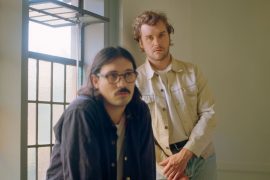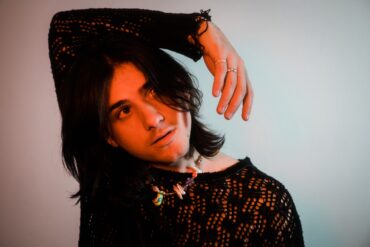She started as a ballerina, then decided to dabble with EDM. Now, she’s signed a deal and is ready for action. Callie Reiff is certifiably in the fast lane.
Stream: “Chain Reaction” – Callie Reiff ft. GiGi Grombacher
The holiday season has just passed, meaning that many of us have recent contact with ballet dancing (lots of companies typically generate about 40% of their annual revenue from performances of The Nutcracker, after all). While the majority of these ballet-goers probably leave the theater with the music of Tchaikovsky, rather than Steve Aoki, ringing in their ears, one talented young lady has managed to come up with a clever way of bridging the two of them together.
Her name is Callie Reiff, and while she’s currently on the rise as an EDM producer and DJ, she started off years ago as a ballerina with the NYC Ballet. “[It gave me] such a passion for performing… and an outlet for me to be myself,” Reiff recalls of her time with the company. “Once I got onstage, I just got so free.”
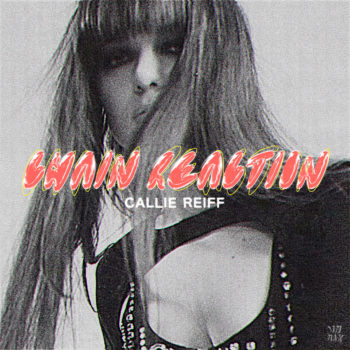
That same free-spiritedness has guided Reiff well throughout her next creative life as an electronica-maker.
She even got a head start in that department when, through the art of persuasion and a well-worded Facebook message, she managed to score a DJ gig at a 21+ event in New York City’s Webster Hall as a teenager.
Now 22, Reiff recently joined Dim Mak Records – founded by Steve Aoki, one of the leading figures in the field of electronica and a longtime hero of Reiff’s – and recently put out her first single with the label, “Chain Reaction,” featuring vocals from Pat Benatar’s goddaughter, GiGi Grombacher.
In an interview with Atwood Magazine, Reiff chronicles her numerous creative endeavors across her life and how they have currently combined to grant her present identity as a committed EDM crafter.
— —
:: stream/purchase Callie Reiff here ::
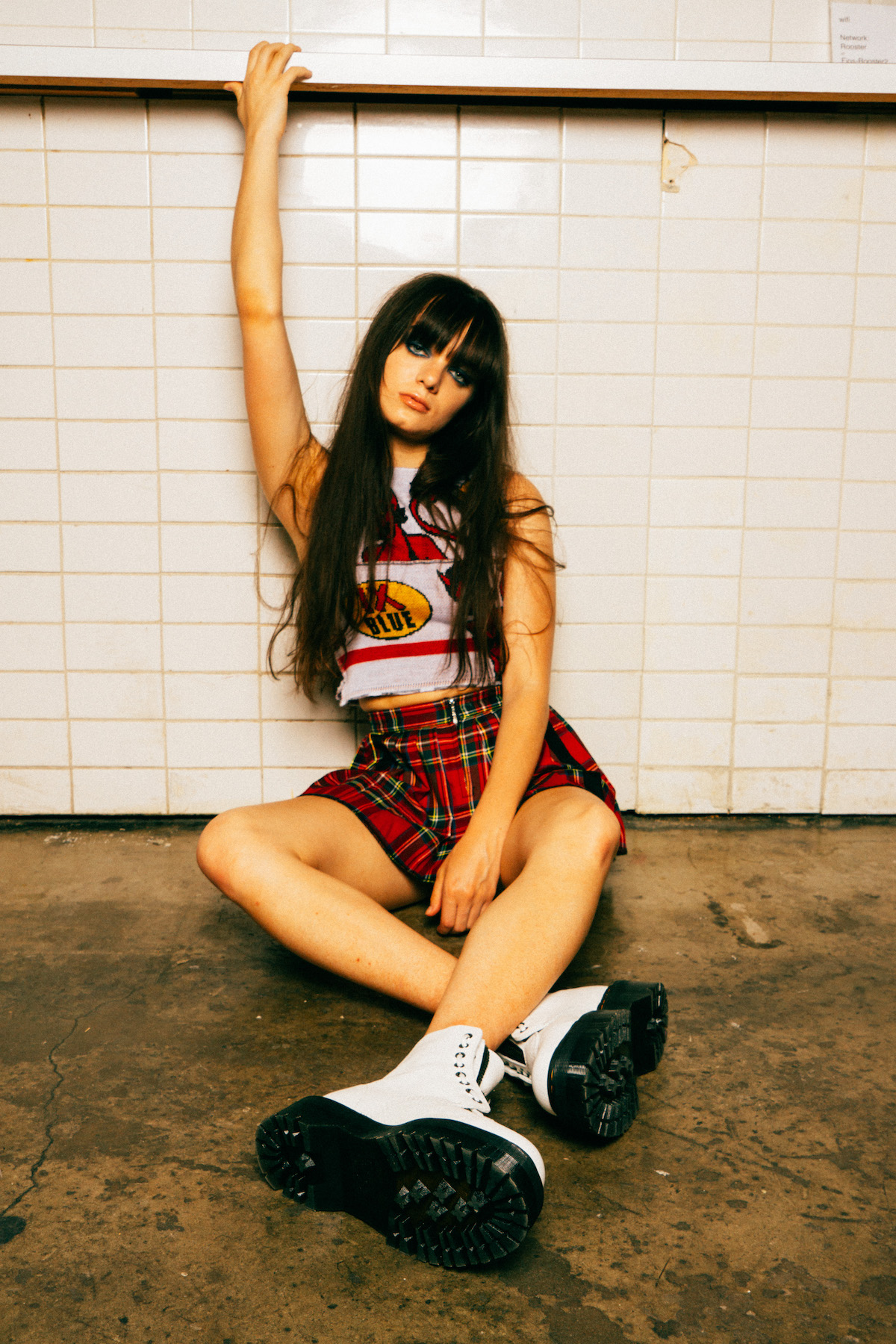
A CONVERSATION WITH CALLIE REIFF
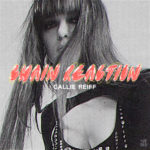
Atwood Magazine: Listening to your music, I can get the sense that EDM is your main focus. Can you talk about your background in that, as a fan initially and then as a performer– how did you make that transition?
Callie: It’s kind of funny. I come from a really classical background— being a ballerina at seven years old with the New York City Ballet, doing a lot of ballet-oriented numbers and listening to a lot of classical music. And then, somehow, I ended up being a hardcore EDM fan and I couldn’t love it more, really.
I think the transition happened the most when I quit dance at around 12 years old and started to pick up drumming just as a hobby— just as something to get my brain flowing in a different way. I remember loving all the instruments in the orchestra and how the the conductor would know the tempos— it was really cool when I was dancing. So I was like, “I should learn an instrument, maybe. That might be my calling.” And I thought that at age 12! (laughs). But in the end, I really enjoyed playing the drums.
One day, my sister was talking to one of her friends and said, “Let’s go to this EDM show!” And I was like, “What’s EDM? What are you guys talking about?” I was trying to get into all of these cool new trends with my older sister. She said, “Obviously, it’s electronic dance music!” I said, “Oh yeah, of course, Duh.” And I had no clue what it was!
Later, I was researching it and learned about Tiesto and Steve Aoki— all those big guys controlling crowds just like a rockstar would. It was like they were massive pop stars, at a Justin Bieber level. I was like, “Woah, this is pretty epic!” I was pretty fascinated by DJ’ing, so I just searched up some DJ schools online, found one in New York called Dubspot DJ, and went to it. At age 12, that’s what I was doing.
At first, they were kind of confused, as they’d never seen a girl that age at the time, back in 2012, so interested in DJ schools. Plus, they were pretty new at the time, and they asked how I had even found them. I was like, “I just looked up DJ schools!” No one really thinks to do that right now, I guess, so it just kind of surprised them.
Anyways, long story short: the founder, JP, took me in and mentored me for two or three years, almost every day. I learned on turntables, learned on vinyl, and I was super, super into it from then on. EDM became my main focus and my first real love of music was all of that house music– ranging from bass music like Skrilexx, to people like Steve Aoki and Martin Martin Garrix. All of the main, big-room house– I was so into it the energy it would give. I was just like, “Oh, I want to do what they’re doing and get up there, too.” That’s where the interest first began.
Can you elaborate on your music education? How did the training you got at Dubspot DJ, Webster Hall, and other places influence you in the long run?
Callie: I think my biggest education was from J.P. at Dubspot. Dubspot is no longer a thing, but J.P. is an amazing guy and we’re still very close to this day. He really was the first person with a DJ/nightclub background in New York to look at me seriously and support me, without any judgment or expectations, and kind of treat me just like anyone else in the game. I felt that respect right away, and I learned so much from him.
Then, at 15, I went to my first EDM show, which was Madeon at Webster Hall. It was a 16+ event and it was probably the one of the best “first shows” you could see; Madeon is insanely talented and always has been. He was very young at the time, too, and it was so inspiring to see someone who was close to my age out there on the main stage and selling out Webster Hall in New York.
It was very cool; once I saw that, I Facebook-messaged the Webster Hall promoter and said, “Hey, I’d love to DJ Webster Hall!” At the time, he didn’t know my age and didn’t look into it, probably because he didn’t expect me to be 15. So he was just kind of like, “Yeah! Send me a mix. Let me hear what you got.” And I was like, “Cool, come to my DJ teacher’s studio, we’ll go back-to-back. I don’t really have a recorded mix– I do vinyl and I’ve never really recorded a mix.”
He was like, “OK, I’ll come to your DJ teacher’s studio.” So he came, we went back-to-back. He was impressed, but his first question was, “Uhh… how old are you?” I was like, “I’m 15.” He said, “There’s no way I can get you to play at Webster Hall, which is a 21+ club in New York.”
I said, “Oh true, but since you’re here anyways, can you hear my play?” He ended up being really into what I was doing and very supportive. He said, “I really want to have you play, I just think I will lose my job.” I said, “OK, no worries, I don’t want you to lose your job, but thank you so much.”
A week later, he calls me and says, “You know what? I convinced my boss. If you come with your parents and X’s on your hands— you come in early, you leave right away— I’ll get you to open for an official Electric Zoo after-party.” I was like, “Okay thanks.” I hung up and started screaming and jumping around the room, going “This is crazy! This is something else!”
That was my first show. After that, Webster Hall almost became my 2nd DJ education without me enrolling in a music school. Every weekend, I got to be the resident DJ and open for all these amazing headliners, including Skrilexx and Zedd and all these cool artists that were from all different genres. I had to have an open DJ format at the time, where it was like “Oh, if this guy plays hard music, I have to play hard music as well, but not too hard, and kind of keep the crowd kind of at a mid-level energy.” It was really like a learning process every weekend— getting to know that I could mess up in front of an audience and not be screamed at or something— because I was the opener and no one was expecting much of me. It was a a cool experience for me that I’ll never forget, and I think it was the perfect education. It’s just kind of like throwing yourself into the fire in front of an audience and having to show up.
I knew at this point that I was ready. I’d had enough training and was able to mix at least a decent amount. That was just kind of how it lifted out after that.
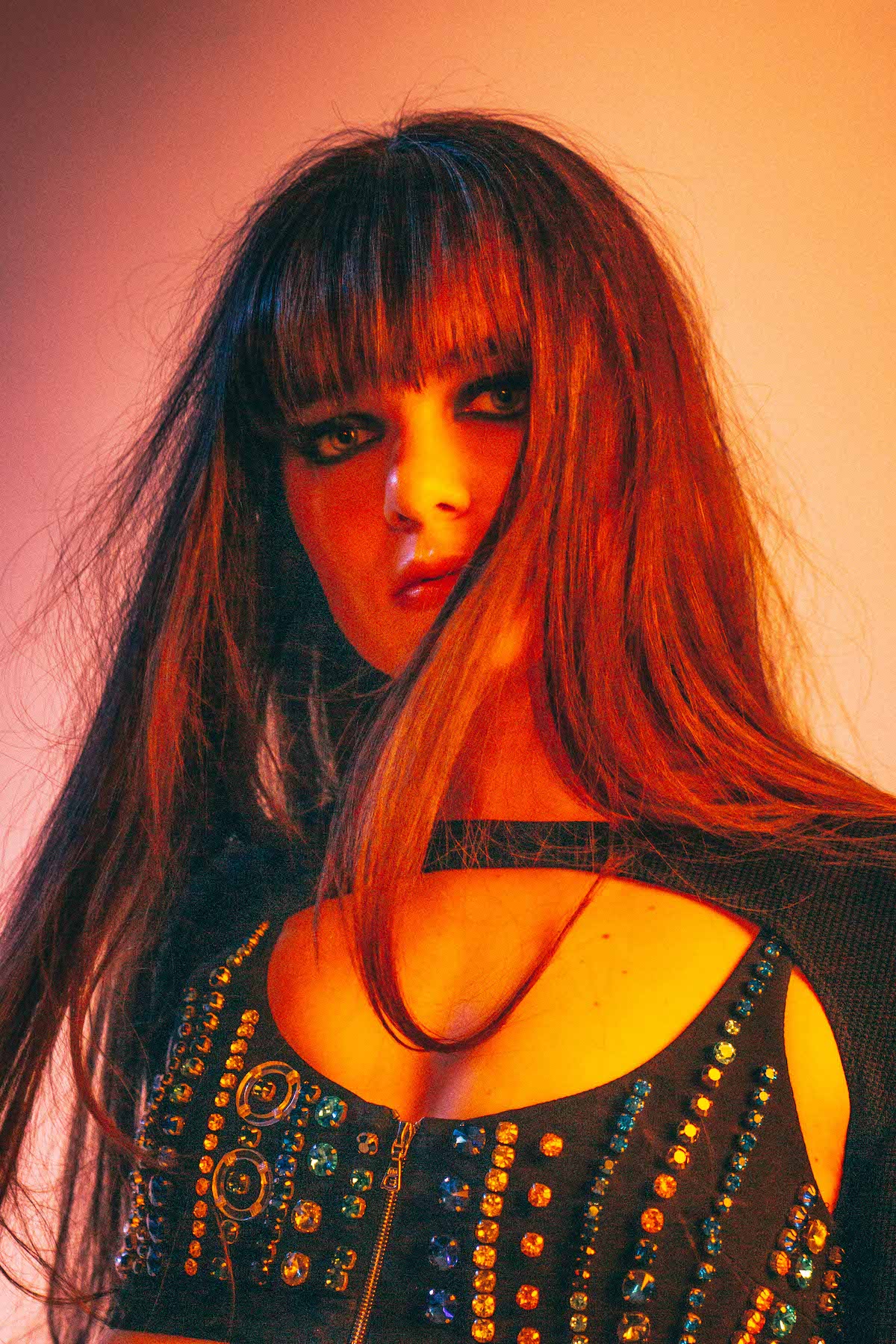
Your new label is called Dim Mak. How does joining this represent a new stepping stone for you artistically?
Callie: What was cool about this is Steve Aoki is the founder of Dim Mak Records. As I mentioned to you right away, he’s a name that I learned about as soon as I started DJ’ing at age 12— he is one of the leading guys in EDM. So, I’d always known about him.
I remember, one time, my brother and I were in this to-go Mexican restaurant in New York. We were waiting there for our tacos and my brother turned to me and said, “Oh my god, that’s Steve Aoki in front of you!” I was like, “No way, there’s no way he’s here.” I was freaking out. I was about 13 at the time. My brother was like, “Yeah, that’s him.” So I said, “Cool, let’s ask him for a picture.” I still have this picture to this day, and it was kind of like a full circle moment to meet him then. I was such a big fan, just starting out, and now we’re basically working together. It’s a super cool moment. That’s one of those things where you just step back and it’s like, “Obviously I’m going in the right direction and it feels right.” It just feels like a correct person to work with, and I’ve looked up to him for years.
Basically, I started opening for him last summer, when shows started reopening after COVID. At the Brooklyn Mirage, one of the best venues in New York, his partner at the label was there listening to me and was like, “Who is this girl? Let’s hear some new music from her. Let’s talk, Callie, I want to see if you have anything new coming out.” After that show, we stayed in touch. I met them in L.A., spoke to them, and kind of just clicked and really got along. They really believed in what I was trying to do and where I was going in my music. They had really great advice and really great guidance. I was immediately like, “This just makes sense to me.” Whenever I feel that way, it’s kind of a good gut feeling and I just go with it because it doesn’t happen often. I usually second guess things or say, “Ah, I don’t know.” But this was pretty correct. We just started working together from there and it’s been awesome ever since.
I think Dim Mak represents a really diverse group of artists that kind of blend all genres into one. Steve comes from the punk rock world— he used to be the lead singer in a rock band and do heavy metal vocals— and now he’s become a big room house DJ and working with all of these crazy mainstream artists like Kid Cudi. It’s insane how he’s come from one end to the other, but it all still sounds like him. And I think that’s also what I’m trying to do, too.
[Dim Mak is] kind of the leading force in EDM. They continue to push the genre and make it kind of cool, unique and fun, but also great for any listener. They can sit back, listen to the music and understand it, rather than thinking it’s something extremely left field or whatever. It’s a nice balance.
If you look across your whole discography, from your earliest single (2016’s “Tin Machine”) on through your most recent one, “Chain Reaction,”, how would you say that things have evolved or stayed consistent?
Callie: I would say that, as a producer, it always took me a little more time to get in the correct mindset of understanding what I wanted to release. In those early years, I was so dedicated to DJ’ing and making my DJ sets the best they could be, so I was putting production on the side. It was kind of like, “Oh, I’ll work on it a little bit here and there,” because I was having all of these opportunities to DJ as an opener and constantly have a crowd every weekend. I felt that that was what I should be focusing on, and I kind of didn’t know what I wanted to make as an artist yet. But I did know that I wanted to make things that were mine and headline my own show one day. I wanted to make everything cohesive and grow into one artist through my DJ’ing and production.
But I still was like, “I don’t really know what I want to make.” And I think in those early years — when this crazy dubstep and bass scene was happening, especially in New York and Webster Hall in particular — they were really great at putting on these amazing shows. The energy I felt with that crazy bass and sound design influenced me right away, because I was like, “Oh, I love how the crowd’s reacting. I love playing this music, so let me try to make it.”
So, that was kind of what inspired me to become a producer — being able to make these weird sounds, loud growls and really intense stuff that I didn’t think that people would expect from me. It was kind of a strange dynamic, because I was standing onstage in a dress and playing my mixes. People would be kinda shocked, but also really into it, which I thought was a fun dynamic. It was really cool to learn about sound design and perform different types of shows in different genres. It made me think, “Oh, I shouldn’t just be focusing on any one genre. I should be focusing on my sound and what I actually want to make outside of these shows. If I had no shows and were just in my room, what would I want to make? What am I listening to, besides EDM?”
As the years passed, I realized I love vocals. I love telling a story in a song, and I love the dynamic that pop singers achieve as they sing all of these pretty melodies while keeping their energy behind it all. So, I kind of ended up mixing all of these dark bass sounds and pretty pop vocals as I was working on “Chain Reaction.” It kind of ended up with this indie club sound, as I like to call it — having those lyrics and really important storytelling in an indie-style arrangement, and then keeping that club-bass energy surrounding the song. I just thought, “If I play this song live, people are going to want to dance to it and feel the energy behind it.”
Right now, I’m super, super happy with how “Chain Reaction” and those other past few records of mine have come out. That’s the sound I’m aiming for and hoping to evolve with on my next records.
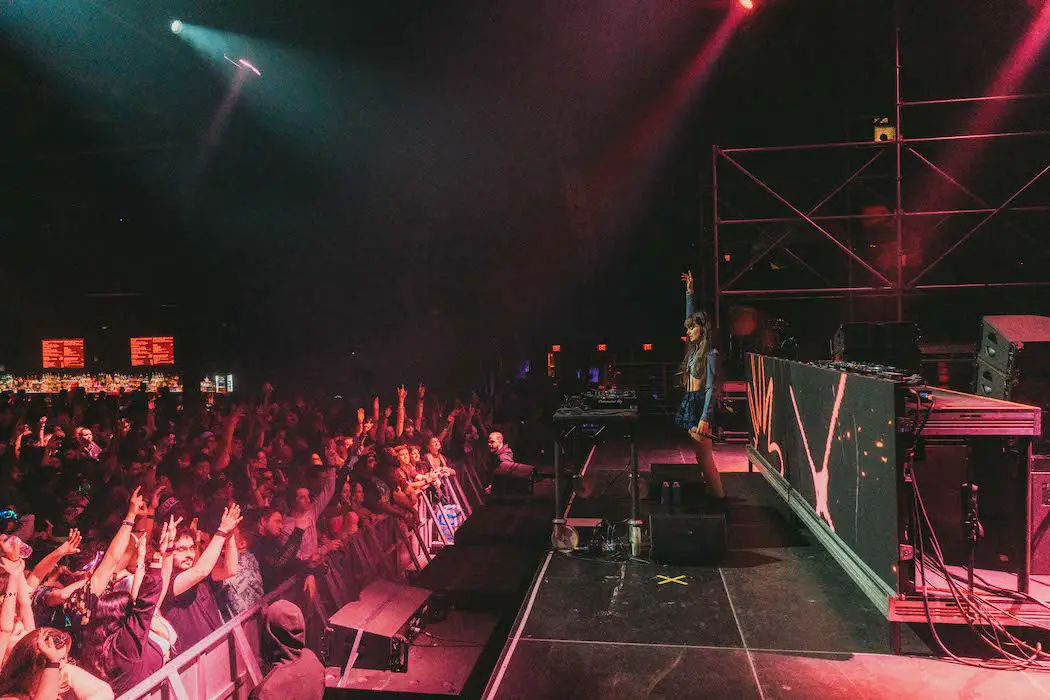
I get a sense that you have a combination of making your own EDM music and performing vocally on it, as well as doing stuff for other artists. Is that true?
Callie: I’ve done a few remixes and stuff like that, but I haven’t really produced for other people. I’ve only ever worked on projects of my own. But I do collaborate with a lot of different artists, in general.
Have you gotten a chance to meet with Alison Wonderland? I can tell that she’s one artist for whom you have done a few remixes.
Callie: Yeah, she’s a really cool person and one of my main inspirations. She’s super, super dope. I’ve opened for her recently and I did a remix for her a while ago. We’ve been in touch every now and then and she’s just a nice, humble artist and really, really talented. She’s one of my favorites, for sure. She’s so cool and very good.
How has being in New York City given you the EDM landscape to navigate and artists to collaborate with and such?
Callie: If it wasn’t for New York City, I don’t really know if I would have ever discovered my love for DJ’ing. There were so many opportunities, left and right, and places I could discover while being here.
New York as a whole has always motivated me, for better or for worse. It keeps you on your toes and you see so many creatives out here. I think that it’s cool how New York really accepted the EDM wave. A place like Webster Hall was a perfect home for all of the EDM heads that love to just party and go crazy every weekend. There was also just such a community that built up. These fans would come and meet each other at one show and, all of a sudden, be friends for life. I was like, “This is why I just love New York. People out here are just really into in this EDM world.” It was so awesome to see.
I still live in New York. I don’t plan on moving out of it any time soon. It’s just such a place of understanding for me. It’s a place that I know well but that’s also always changing. The creativity levels are insane here, and I always find someone new that will inspire me almost weekly, somehow. It’s definitely impacted me to always be better at what I can do… to try my best and also be open to experimenting… and to try different ideas and different angles, instead of just always going by the classic way of learning things. I think that just has to do with being from New York and being around really cool people.
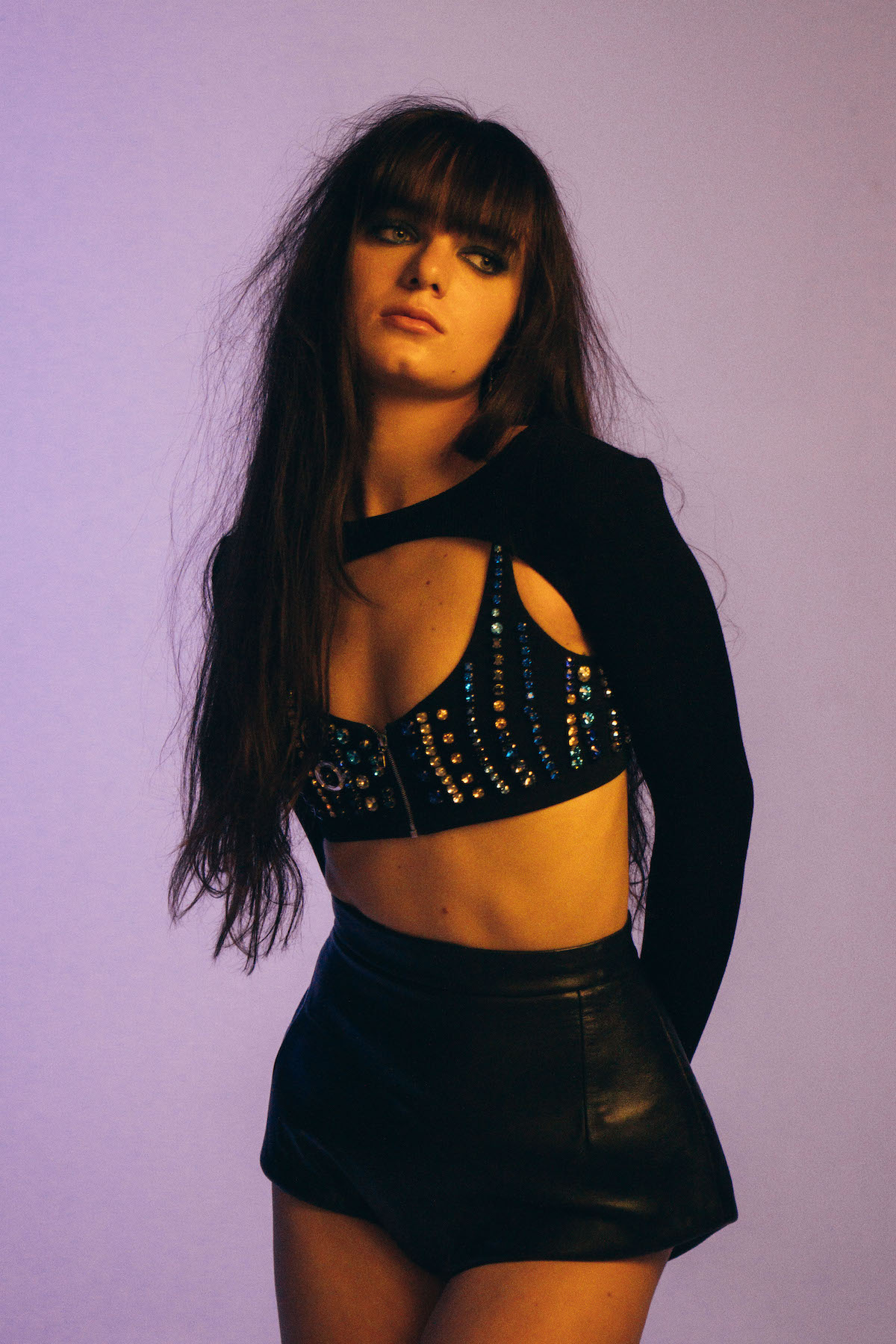
I was interested in your involvement in ballet. Obviously, your performing days are behind you, but can you talk about your current relationship with ballet, as a fan or admirer, and also how it may have influenced your creative expression, even on another platform?
Callie: Yeah, I think ballet is the main foundation to almost everything I’ve done, in a small sense, which is very interesting. I didn’t really realize it until later on in life, when I got older and realized why I do the things the way I do. At a young age, being disciplined in an atmosphere where you really want to be great [gave me] such a passion for performing, realizing that it was such a creative expression for me and an outlet for me to be myself. Once I got onstage, I just got so free. I worked really hard at training for it. I just liked the process of getting into something, understanding it, and then doing it better the next. I also really liked the muscle memory the went into it. I picked up on of those things and they helped me to become who I am today.
With music, it’s important to learn the different counts, conductors, and BPMs that go into the same piece; you just pick up on all of those things. Once I got into DJ’ing and drumming, the tempos and timing of things were just second nature to me. I was really grateful for that, because it made me really comfortable with experimenting and mixing without being too strict with myself. I try not to think, “Oh, this song and that song have such different BPM’s, so I can’t mix them together. It would be wrong to do so!”
Since I didn’t really go to a college music school where it was like, “This is how you do music,” it was more just like, “Let’s let’s try it!” And then, “Oh, it works!” That’s just how my mixing abilities grew, and I’m just grateful that my brain is now structured to tell me that I can be as creative as I want. I needed to use that ballet platform in a different way, and performing onstage as a DJ is kind of the equivalent feeling for me. I still get to tell myself, “This is me performing. It’s not a piece. I’m not dressing for a role right now. It’s just me, what I want to wear, and I want to play.”
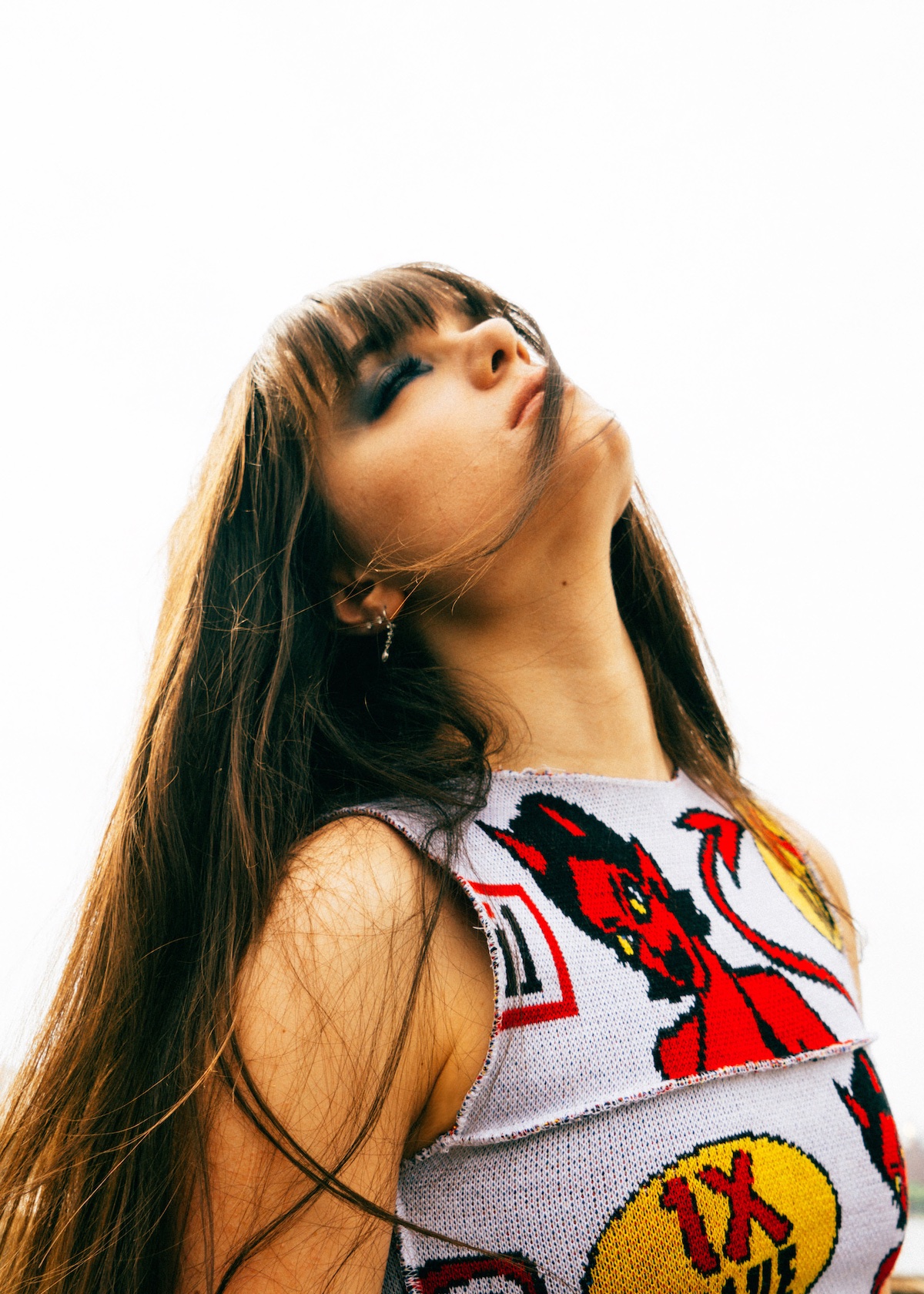
What’s the timeline for your current musical projects, in terms of what you’re working on and what’s about to be released?
Callie: “Chain Reaction” just came out and it’s getting a positive reaction, which I’m excited about; people seem to really be digging it. I have a few shows coming up– I’m playing in Cancun, Mexico with Deadmaus and Cascades in December, which will be fun. I’m trying to also get in a few more shows before the end of the year because– as I’ve said probably 20,000 times now, probably– I love performing. And so, that’s really fun.
The rest of the project will come out at the beginning of the new year. We’re kind of letting it breathe because I had a few releases this year that I feel deserve some time to just sit and be enjoyed properly before the rest of the project comes out. There will be an EP that will come out in the new year, and I’m really looking forward to it.
Any final words you’d like to share with your fans?
Callie: Check out the new single, “Chain Reaction.” I hope everyone likes it as much as I do. I’m really excited to be working with Steve and Dim Mak, and I’m super grateful for the team there. I appreciate your time and love the Atwood site. It’s really cool!
— —
:: stream/purchase Callie Reiff here ::
Stream: “Chain Reaction” – Callie Reiff ft. GiGi Grombacher
— — — —

Connect to Callie Reiff on
TikTok, Facebook, Twitter, Instagram
Discover new music on Atwood Magazine
? © Bellamy Brewster
:: Stream Callie Reiff ::

